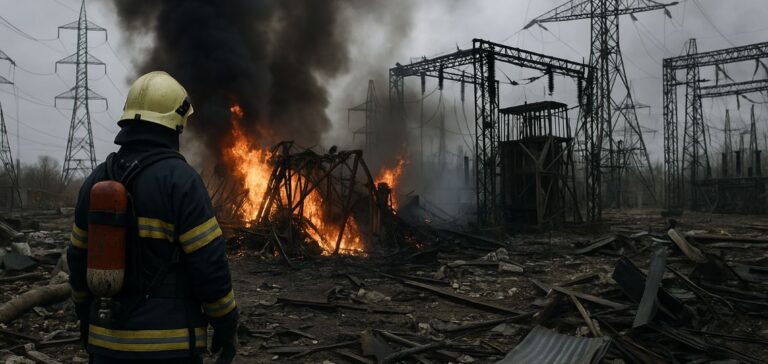French and British authorities have accused the Russian Federation of maintaining strikes on energy infrastructure in Ukraine, thereby undermining diplomatic efforts led by the United States to establish a ceasefire. French Minister for Europe and Foreign Affairs Jean-Noël Barrot stated that these attacks have continued without interruption over the past three weeks, describing them as direct obstacles to any progress towards peace.
Repeated targeting of energy facilities
Speaking from the headquarters of the North Atlantic Treaty Organization (NATO) in Brussels, Jean-Noël Barrot emphasised that energy production and distribution infrastructure continued to suffer from targeted bombardments. These facilities, essential to the energy supply of the Ukrainian population, have repeatedly been identified by observers as strategic pressure points in the conflict.
His British counterpart, Secretary of State for Foreign, Commonwealth and Development Affairs David Lammy, supported this assessment, stating that the President of the Russian Federation, Vladimir Putin, was persisting in hostilities against civilian infrastructure despite the possibility of an immediate truce. According to Lammy, Moscow’s declared willingness to negotiate has not materialised into concrete actions, thereby maintaining instability across Ukraine’s energy networks.
Increased military presence in Kyiv
In response to the escalation, the Chiefs of the General Staff of the French and British armed forces travelled to Kyiv to discuss security measures required in the event of a peace agreement or ceasefire. Jean-Noël Barrot explained that this initiative aimed to prepare long-term logistical and military support guarantees to secure critical energy facilities.
According to present Western diplomats, Kyiv and Moscow have accused each other of breaching a non-strike agreement on energy infrastructure that was brokered with the support of the United States. French and British officials have called for increased economic and military support for Ukraine to deter further degradation of its energy capabilities.
Call for concrete commitments
David Lammy reiterated that economic sanctions against Russia remain in place and would continue until genuine willingness to negotiate is demonstrated. He stressed the importance of intensifying international pressure to place Ukraine in a more advantageous strategic position.
Annalena Baerbock, Federal Minister for Foreign Affairs of Germany, also responded by noting that verbal commitments from the Kremlin have not translated into action, describing Vladimir Putin’s ceasefire promises as lacking substance.






















